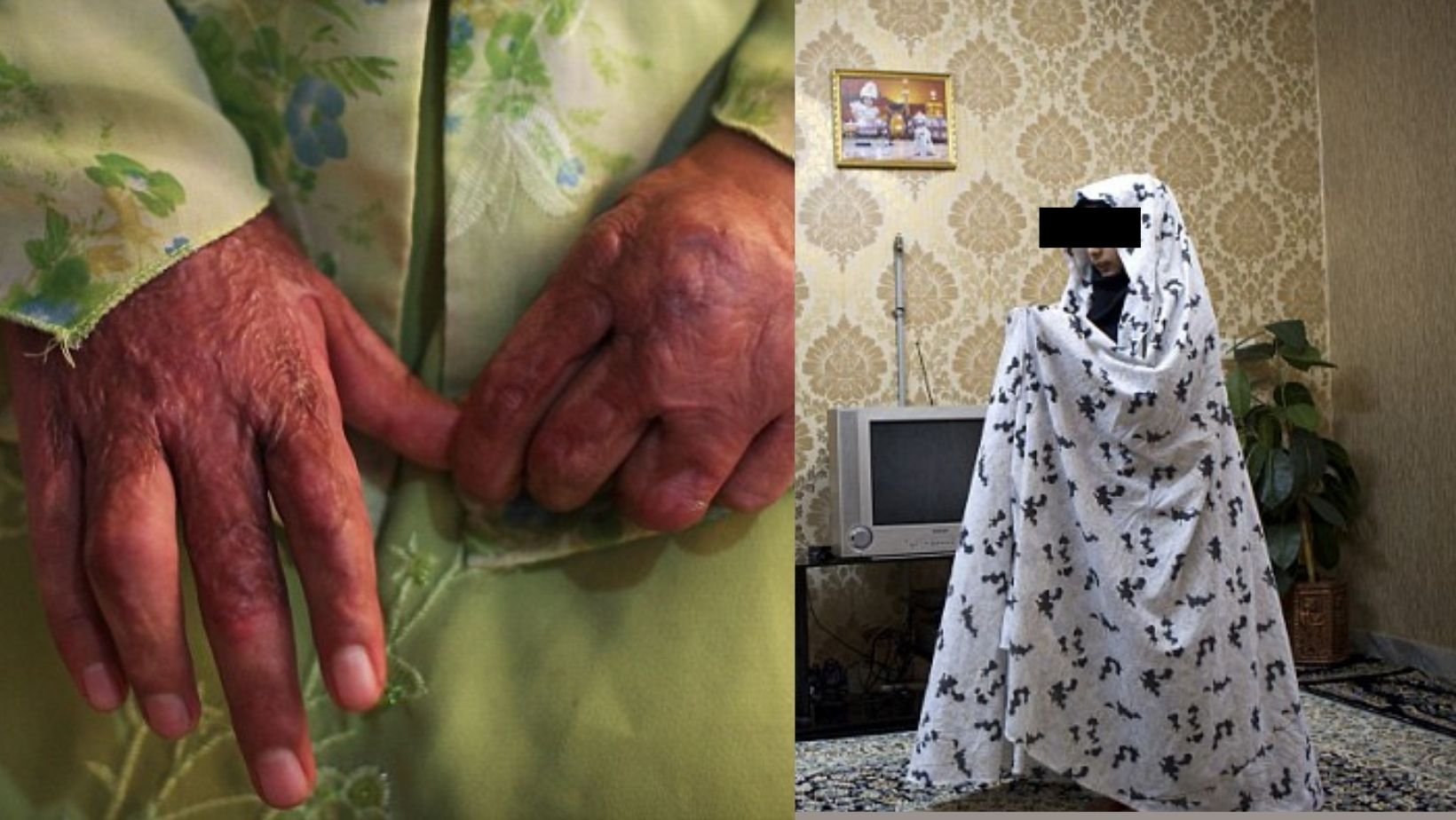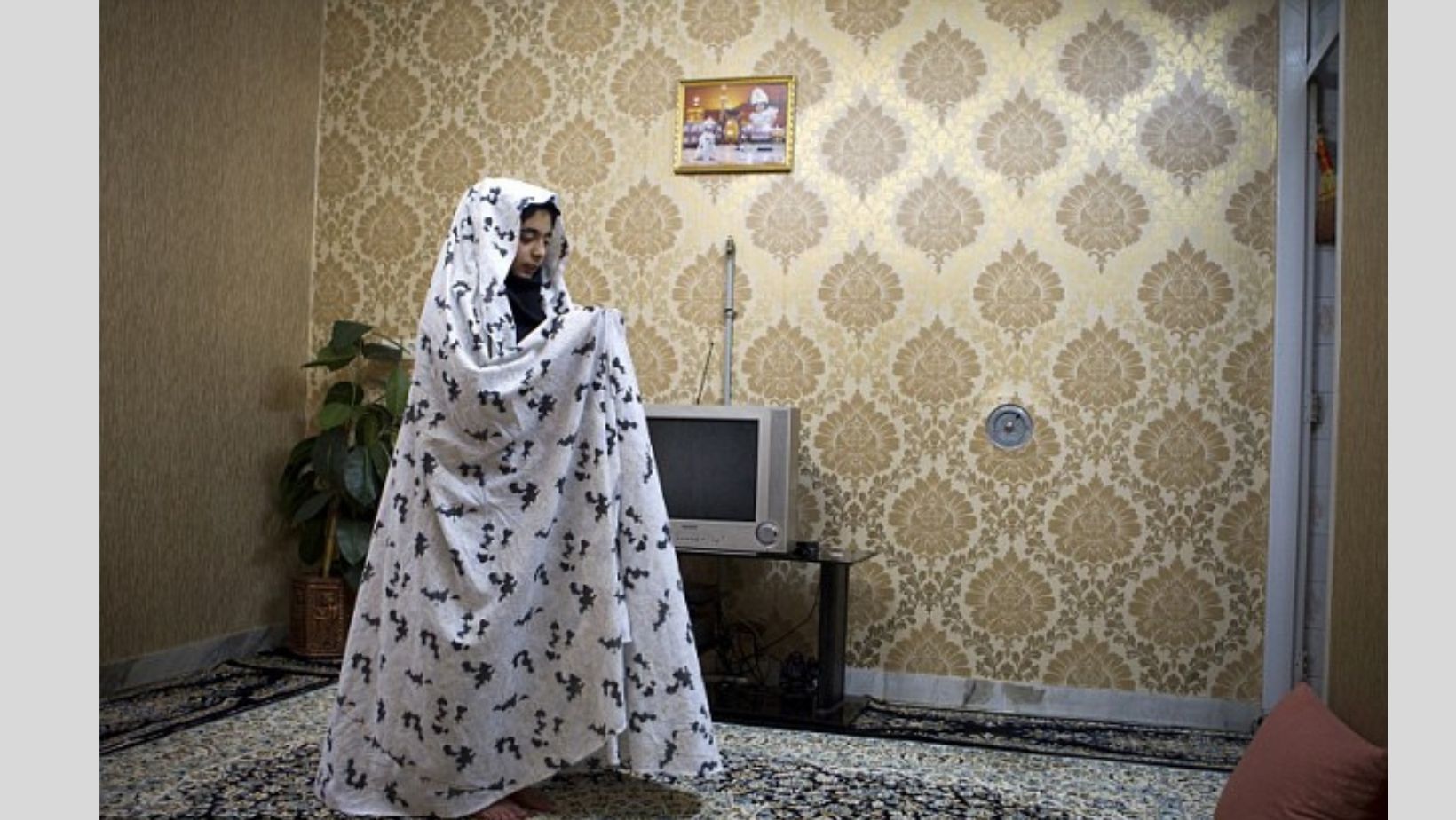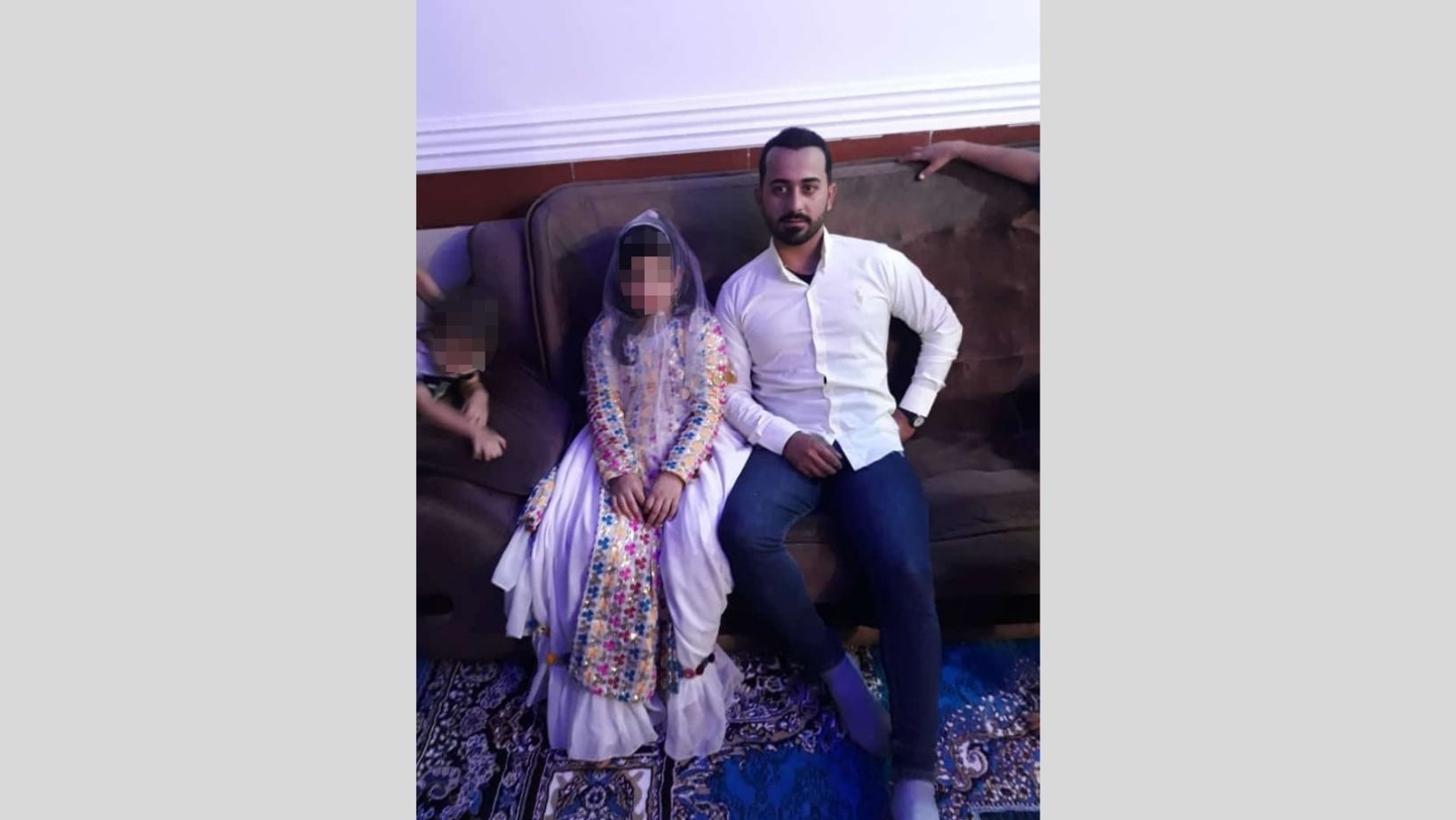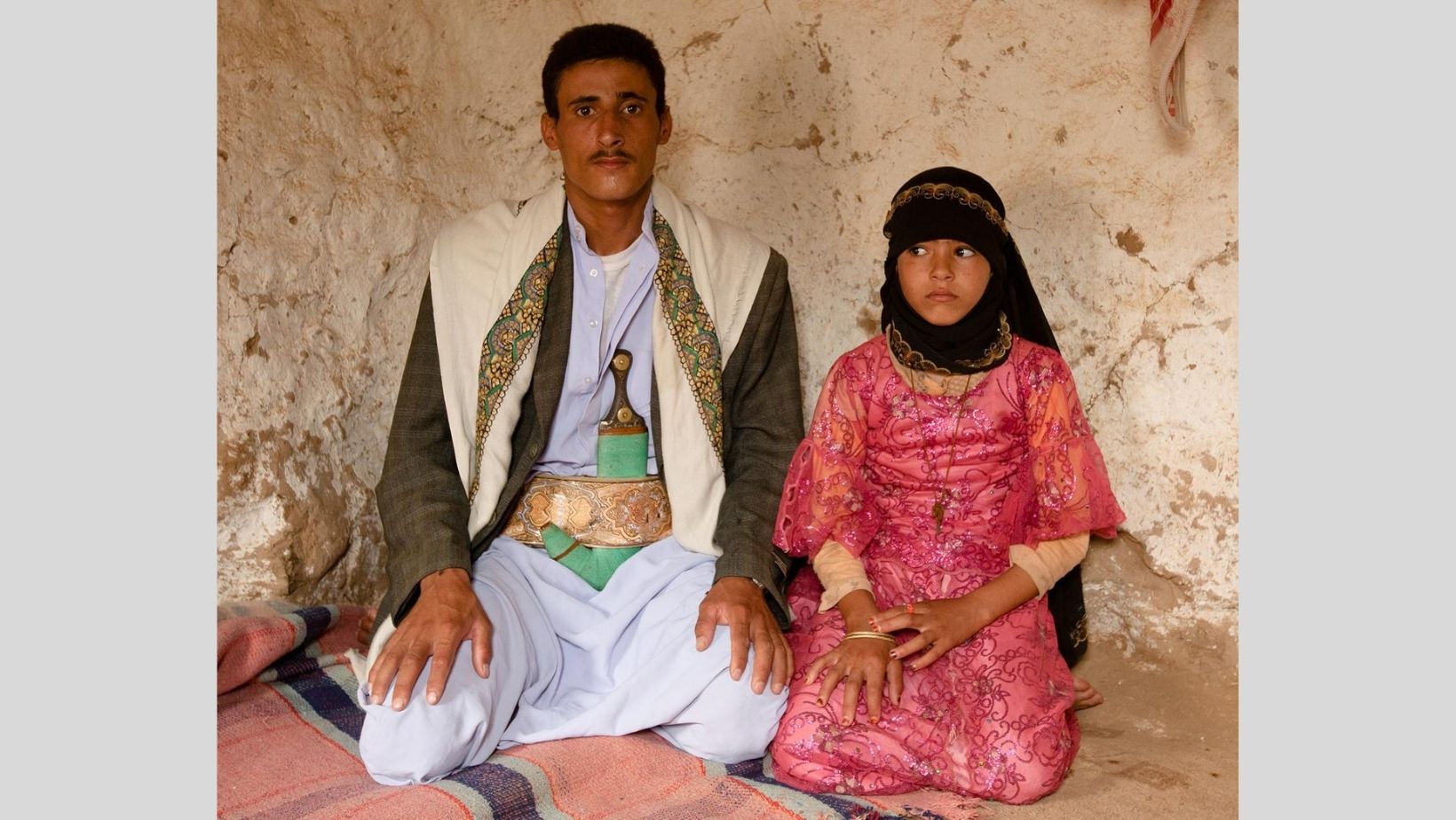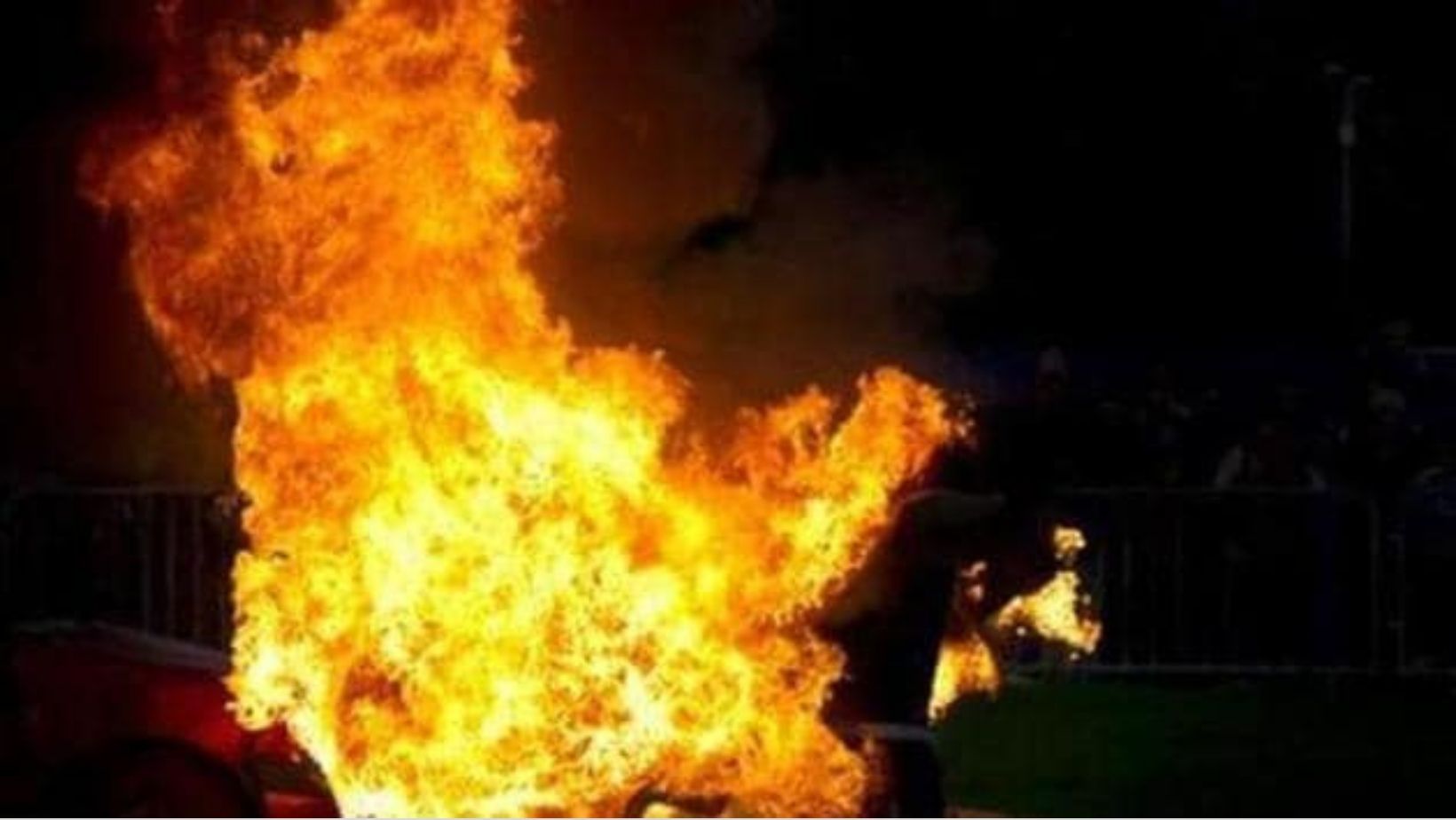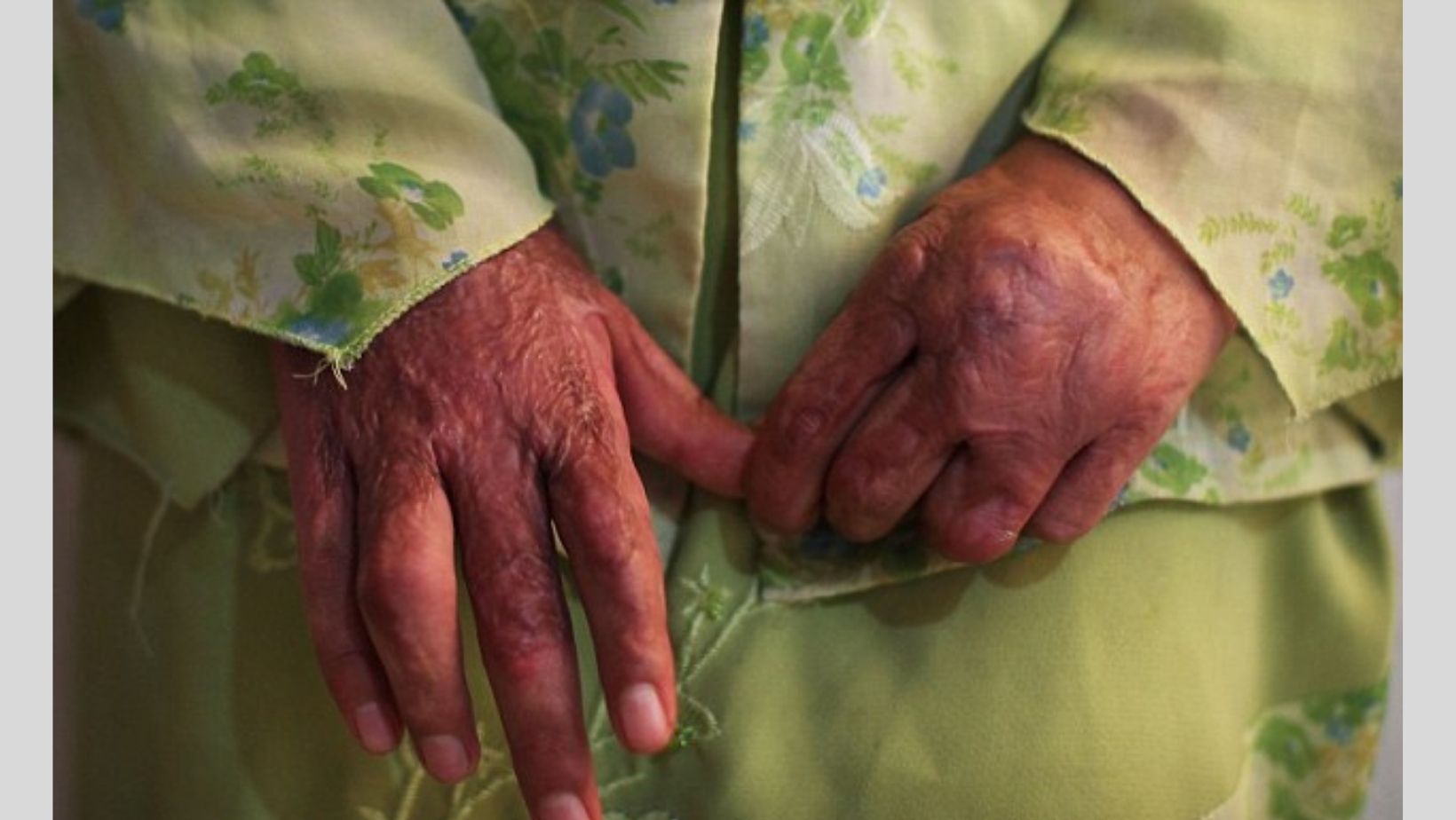In Iran, Mashid Razai grew up in a remote village and said her childhood was a relatively happy one although she, her mother and her three brothers were all terrified of their father.
“My mother was my father’s fourth wife,” Mashid, now 36, told MailOnline. “He didn’t have children with his other wives. My mother told me that all three of his previous wives ran away because he beat them.”
“I remember once he tied my hands and feet with rope to a piece of wood and he and my mother beat me with another piece of wood,” Mashid remembered. “They were angry with me because I had gone to the gate at the front of our house to watch a wedding procession and they did not like the families holding the wedding.”
Despite the patriarchal violence, Mashid said she was a happy kid who enjoyed her studies at the village school and loved playing with her brothers.
With both of Mashid’s parents working in the fields, she was expected to take on a lot of household chores and shared other duties with her mother.
But the peace of her childhood reached its end when her father said that he found a husband for her, despite the fact that Mashid was just 11 years old back then.
“My mother came to me at home and told me that the next afternoon a man would come and ask me for my hand in marriage,” Mashid explained. “I asked her who it was and she told me the name of a man who lived in our village, who was married and had two children. I was only 11 years old and he was 35.”
“I was crying,” she said. “I told my mother that he already had a wife and children.”
“I said I was only 11 years old. I told her I wanted to be a teacher because I loved my teacher,” Mashid said. “But she insisted that I would get married to this man.”
Mashid ran to her teacher, hoping she could help her only to be told that nothing could be done. She then ran to hide in the mountains but she was scared of being eaten by a wolf so she returned home and hid.
“My parents found me and assumed that because I had returned home I was agreeing to the wedding,” she recalled. “I still couldn’t really believe that it was actually true, that it was going to happen. But when I saw my family preparing food and setting out tables, I knew really it was going to happen.”
The child was desperate to avoid the forced marriage, so she ran into the kitchen, took out a bottle of paraffin, doused herself in and set herself on fire.
“I was panicking,” she explained. “I just wanted to escape so I tried to kill myself.”
“My father had lots of weapons and I considered using them but I chose fire,” Mashid said. “I poured some paraffin on my skirt and I lit a match. My skirt caught fire. When I saw the fire, it was intense and very real. I regretted it. I tried to put the fire out with my hands.”
“I tried to get out but I had shut the door and it was difficult. I was panicking. The flame was raging and was burning my face,” Mashid explained. “I could see flames in my hair. I managed to get out into the courtyard. A neighbour was on the flat roof next door. He saw me and jumped down. I don’t know what happened after that.”
Mashid then spent the next three months unconscious in a hospital. And what happened to her did not spare her from the wrath of her father, who was extremely furious that his plans were foiled and scared for the family honour.
“I was screaming constantly every day,” Mashid remembered. “I had open skin when they changed the bandages.”
“On top of that my father beat me for what I had done whilst I was at the hospital,” she said. “Also once I wet myself and my mother punched me in the face. They were so angry with me.”
When the 11-year-old left hospital, he returned to her parents’ house after her former fiance rejected her because he now saw her as ‘dirty’ and ‘ugly’.
At their house, things went worse with her father becoming more physically aggressive and telling her that he wished she was dead.
“My father was very aggressive,” she said. “He told me I shamed the family and he was embarrassed because of how I looked.”
“I overheard my father saying he wanted me to be taken to a hospital and killed with an injection.”
By the age of 13, Mashid could not tolerate the abuse anymore. She stole some money from her parents and escaped to Tehran where she went straight to a hospital.
Mashid said that a plastic surgeon took pity on her, and eventually helped her to escape Iran and her violent father for good.
Mashid, who now lives in London, remains deeply scarred but is starting to move on with her life. She was helped by the Iranian and Kurdish Women’s Rights Organisation.
However, her family still remained in Iran and said that she hasn’t spoken to them for more than 20 years.
“It was dangerous for me to stay in Iran,” Mashid added. “As burnt, scarred woman, I was vilified.”
“People attacked me. They insulted me, pulled at my clothing and children threw stones at me,” she said. “I was always scared. I had to run away.”
In London, Mashid has found some form of acceptance and said she might consider a relationship, even though her view of men was stained by her father’s behaviour.
“I was so surprised when I first arrived [in London] because people did not point at me or throw stones at me,” she remembered. “It was such a relief.”
“Since being here, I have been trying to come to terms with what happened to me. I want to study, which I didn’t have the chance to before,” Mashid said. “Then I want to help girls and women at risk of early and forced marriage, so they don’t end up like me.”


